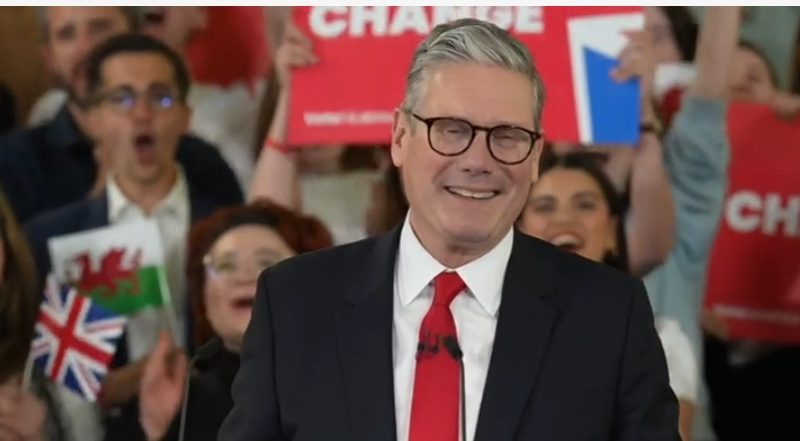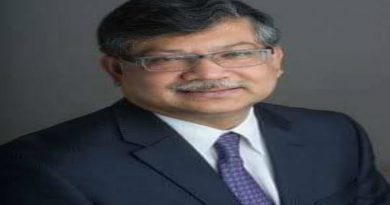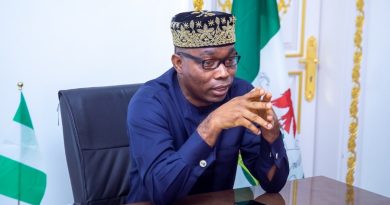BRITISH ELECTION: Nigeria’s Corrupt Electoral System Must Be Reformed-HURIWA
Oru Leonard
The Human Rights Writers Association of Nigeria (HURIWA), has called on the Nigerian government and electoral bodies to draw lessons from the recently concluded UK general election, where the Labour Party, led by Sir Keir Starmer, secured a landslide victory over the incumbent Conservative Party. The association observed that the UK election was marked by a seamless, transparent, and peaceful process, starkly contrasting the chaotic and often violent elections witnessed in Nigeria.
In a press statement, HURIWA stated that Sir Keir Starmer’s victory ended the Conservative Party’s 14-year rule, during which five prime ministers served. “Outgoing Prime Minister Rishi Sunak accepted responsibility for the defeat, announcing his resignation as party leader in a dignified statement outside 10 Downing Street. He apologized to his colleagues and acknowledged the need for a new direction within the Conservative Party.”
“In his first speech as prime minister, Starmer emphasized a period of “national renewal” and prioritizing the country over party interests. “For too long we’ve turned a blind eye as millions slid into greater insecurity,” he said. “I want to say very clearly to those people: Not this time. Changing a country is not like flicking a switch. The world is now a more volatile place. This will take a while, but have no doubt the work of change will begin immediately.
“The UK election was distinguished by its transparency and simplicity. Voters were required only to present a national identity card or driver’s license to vote; there was no need for a separate voter registration exercise or voter card. This approach made the electoral process highly accessible and reduced the potential for fraud”.
HURIWA noted that the absence of vote-buying, voter inducement, and the seamless transition of power were significant markers of the UK’s robust democratic system. While frowning that In contrast, Nigeria’s elections have been marred by allegations of vote-buying, voter suppression, and violence, HURIWA expressed concern that the Independent National Electoral Commission (INEC) in Nigeria has often been criticized for its inefficiency and susceptibility to corruption.
HURIWA emphasized that Nigeria, having been governed and given independence by the British, should adopt the best practices from its former colonial rulers. The association lamented the current state of Nigeria’s electoral system, where institutions are weak and elections are often far from free and fair.
“There is no need to have an INEC that allegedly siphons billions from candidates to rig elections,” HURIWA stated. “The funds wasted on flawed elections could be better used to alleviate poverty.”
The association highlighted the recurring issues in Nigeria’s elections, such as voter registration challenges, the influence of money, and the involvement of armed thugs. HURIWA cited the 2023 elections in Nigeria, particularly in Imo State, where allegations of violence and manipulation by political thugs were rampant.
HURIWA also criticized the Nigerian judiciary, alleging that some judges accept bribes to alter election outcomes. “This corruption undermines the democratic process and contributes to Nigeria’s persistent governance challenges. The judiciary must be independent and incorruptible to ensure free and fair elections,” HURIWA asserted. “The current system, where the executive arm approves judges, is fundamentally flawed.”
The association called for significant reforms to INEC, suggesting it should be unbundled or even disbanded and replaced with a more effective electoral body. Without these reforms, HURIWA warned of potential crises in future elections.
While concluding that the recent UK election exemplifies how a transparent, accessible, and peaceful electoral process can strengthen democracy, HURIWA urged Nigerian authorities to learn from the UK’s example and implement necessary reforms to ensure that future elections are free, fair, and credible.
“Nigeria’s democratic journey can be revitalized by adopting these best practices, ensuring that elections reflect the will of the people and contribute to national stability and development.”
The association also stressed that if Nigeria fails to reform its electoral system, it will continue to face significant challenges, including poor governance, corruption, and insecurity. “The benefits of a transparent and fair electoral process extend beyond the immediate election cycle, contributing to overall national development and stability”, HURIWA Concluded.
(HURIWA Media)
Cover Photo Credit of Sir Starmer: BBC




